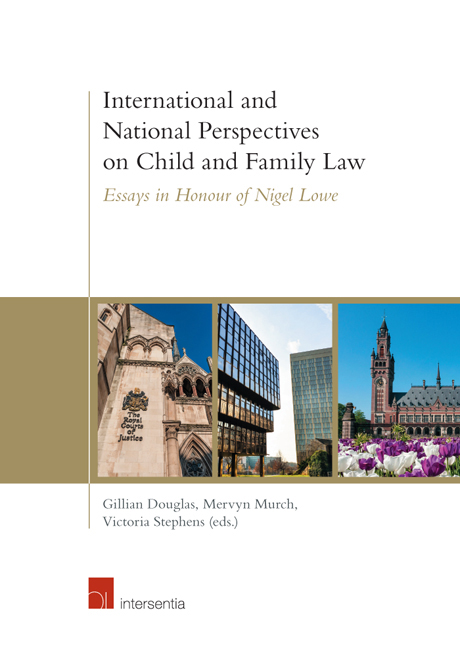Foreword
Published online by Cambridge University Press: 12 October 2018
Summary
I can think of no-one in academic family law who is more deserving of a Festschrift than Nigel Lowe. What is a Festschrift? Literally it is a ‘celebration writing’ but more usually defined as ‘ a collection of essays or learned writings contributed by a number of people to honour an eminent scholar, especially a colleague’. Nigel is certainly worthy of the title ‘eminent scholar’. The range of his contributions to scholarship in family law is quite extraordinary.
He is, first and foremost, a proper lawyer. He loves analysing decided cases at length and in real depth. This was apparent early on in his ground-breaking book with Richard White on Wards of Court and continues to be on show with every new issue of Clarke Hall and Morrison on Children to which he contributes. That he has agreed to take on the burden of its general editorship is tribute to his amazing resilience and energy. His work has always been of real value to legal practitioners as well as to academics, and he obviously enjoys working collaboratively with them.
But he was also an early pioneer of inter-disciplinary studies in family law, in particular in partnership with Mervyn Murch, with whom he conducted a number of studies on adoption funded by the Department of Health and the Economic and Social Research Council. Once again, he obviously enjoyed working collaboratively with a number of socio-legal scholars as well as with practitioners.
As if that were not enough, he then branched out into international collaboration, providing us with invaluable data on the practical working of the Hague Convention on the Civil Aspects of International Child Abduction, and working with both the Council of Europe and the European Commission on the various European instruments dealing with family law. No-one working in family law these days can afford to ignore its international aspects – such is the movement of people and families around the world but especially within the European Union. As we write, we are all wondering what reciprocal arrangements can and will be negotiated to provide for continued mutual recognition and enforcement of family court orders within Europe: unlike commercial lawyers, we cannot solve the problem with a simple choice of law and choice of forum clause.
- Type
- Chapter
- Information
- International and National Perspectives on Child and Family LawEssays in Honour of Nigel Lowe, pp. v - viPublisher: IntersentiaPrint publication year: 2018

